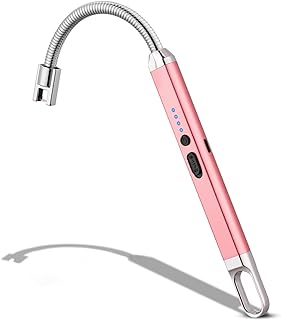Light My Fire: A Comprehensive Guide to Different Lighter Types
From the humble flint to the sleek plasma arc, the art of igniting fire has seen remarkable evolution. This guide explores the fascinating world of lighters, delving into their diverse mechanisms, advantages, and drawbacks.
1. Flint Wheel Lighters:
* Mechanism: Friction between a spinning flint wheel and a striker rod creates sparks that ignite flammable gas or liquid.
* Advantages: Reliable, affordable, readily available.
* Disadvantages: Can be messy, prone to clogging, lighter fluid can be flammable.
* Types: Bic lighters, Zippo lighters, traditional lighters.
2. Piezoelectric Lighters:
* Mechanism: Pressing a button releases a hammer that strikes a piezoelectric crystal, generating a spark.
* Advantages: Clean, reliable, convenient.
* Disadvantages: Can be less powerful, require a battery.
* Types: Common in kitchen and camping lighters.
3. Electric Arc Lighters:
* Mechanism: Generates an electric arc between two electrodes, igniting the gas or liquid.
* Advantages: Windproof, reliable, clean, aesthetically appealing.
* Disadvantages: Higher cost, requires recharging.
* Types: Plasma lighters, USB lighters.
4. Torch Lighters:
* Mechanism: Utilize a gas-powered jet flame, creating a focused, powerful flame.
* Advantages: Excellent for lighting large objects, powerful flame.
* Disadvantages: Can be dangerous if not used correctly, limited battery life.
* Types: Common in cooking and welding applications.
5. Butane Lighters:
* Mechanism: Refillable with butane gas, ignited by a spark or piezoelectric crystal.
* Advantages: Versatile, refillable, affordable.
* Disadvantages: Can be messy, flammable.
* Types: Widely available in various designs, from standard lighters to windproof models.
6. Candle Lighters:
* Mechanism: Utilizes a wick soaked in flammable liquid, ignited by a spark.
* Advantages: Lightweight, easily portable.
* Disadvantages: Limited flame size, shorter lifespan.
* Types: Often used for candles, fireplaces, and emergency situations.
7. Solar Lighters:
* Mechanism: Uses a small solar panel to charge a battery, providing energy for a spark igniter.
* Advantages: Eco-friendly, sustainable.
* Disadvantages: Limited by sunlight availability, longer charging time.
* Types: Available in various shapes and sizes, focusing on environmental sustainability.
Choosing the Right Lighter:
Consider the following factors when selecting a lighter:
* Purpose: What will you be using the lighter for?
* Frequency of Use: How often will you be using the lighter?
* Budget: How much are you willing to spend on a lighter?
* Features: What features are important to you, such as windproof design or refillable options?
* Sustainability: Do you prioritize environmentally friendly options?
Safety Precautions:
* Always store lighters out of reach of children and pets.
* Never leave a lit lighter unattended.
* Handle lighters with care, avoiding contact with flammable materials.
* Follow manufacturer instructions for use and maintenance.
Conclusion:
The world of lighters offers diverse options to suit various needs and preferences. Whether you're seeking a reliable flame for camping, a stylish spark for a candlelit dinner, or a sustainable choice for everyday use, there's a perfect lighter waiting to be discovered.


